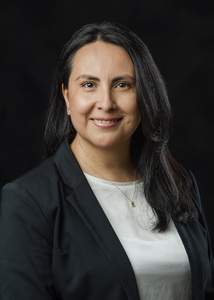
Tell us about your background and international/research-for-development interests.
I was born and raised in Colombia and came to the U.S. in 2012 to pursue my PhD at Mississippi State University sponsored by Fulbright. Since I was an undergraduate in Colombia, I was very interested in development. Years later, I can say international development is my passion. One of my first jobs was with a United Nations Development Program (UNDP), assessing the socio-economic effects of government projects funded with petroleum royalties. I have also worked on international development projects funded by USAID and USDA.
How does your professional background inform your approach at the Fish Innovation Lab?
What I bring to the table is my experience as a social scientist and policy researcher, who has conducted applied research on food systems in development settings. My background in political science and policy gave me the foundations to better understand how institutions determine social outcomes; therefore, innovations in aquaculture and fisheries do not happen in a vacuum but in a complex set of interactions between producers, consumers, and a variety of stakeholders. My education and professional work had provided me with multiple opportunities to approach problems, like food insecurity, from a complex-integrated perspective.
In your view, what are the most pressing challenges related to food and nutrition security worldwide, and what are some ways we can overcome these challenges?
Reliable, sustainable, and affordable access to food has been and continues to be a critical issue to ensure food and nutrition security worldwide. Nowadays, we see how the COVID-19 pandemic and localized conflicts are negatively affecting the overall global progress in food and nutrition security. This is a reminder that we live in a hyper-connected world. This is both a challenge as well as an opportunity. The Fish Innovation Lab supports the development of innovations that are tackling these critical issues of access to affordable and nutritious foods, particularly fish.
What do you wish other people knew about fish and/or food security?
About fish, I’d like people to keep in mind how nutritious fish is, especially how powerful it can be in supporting child development. Regarding food security, we all need to keep in mind that we are all part of a system, and each part of the food we eat today can be traced back to a farm, a lab, or a factory.
What other careers might you have pursued if you hadn't pursued the career you are currently in?
While not very distant from what I do today, I’d probably have chosen a career in law or economics. I think these areas are complementary to the work I do today.
What are your hobbies or activities outside of work?
I love nature; therefore, I enjoy hiking, riding on a river, and simply sitting and watching birds. I also love traveling and getting to know new cultures and people, which includes trying their food. Food is a way to know a culture. The ingredients and the cooking methods can tell you so much about a place and its people.
What is on your bucket list? (What do you hope to do, accomplish, see, experience, etc. in your lifetime that you haven’t yet?)
I would like to travel more with my husband. We have a few places on our bucket list. In the U.S., we would like to go to the National Parks, and abroad, we would love to go to Machu Pichu in Peru, Buenos Aires in Argentina, and eventually travel to Asia.
If you would like to, tell us about your family, where you are from, and any personal details you would like to share.
I am married to Bryan who is a wonderful man from Mississippi. We are a good team and complement each other nicely. We love our life together. His family adopted me as one of their own, which I am very thankful for. I am also very close to my family in Colombia (my parents, three brothers, and a niece), so I try to visit them at least once a year. One of my brothers, Daniel (Dani), has Down syndrome; he has taught me so much, and he is a very important part of my life.
Published June 26, 2023
